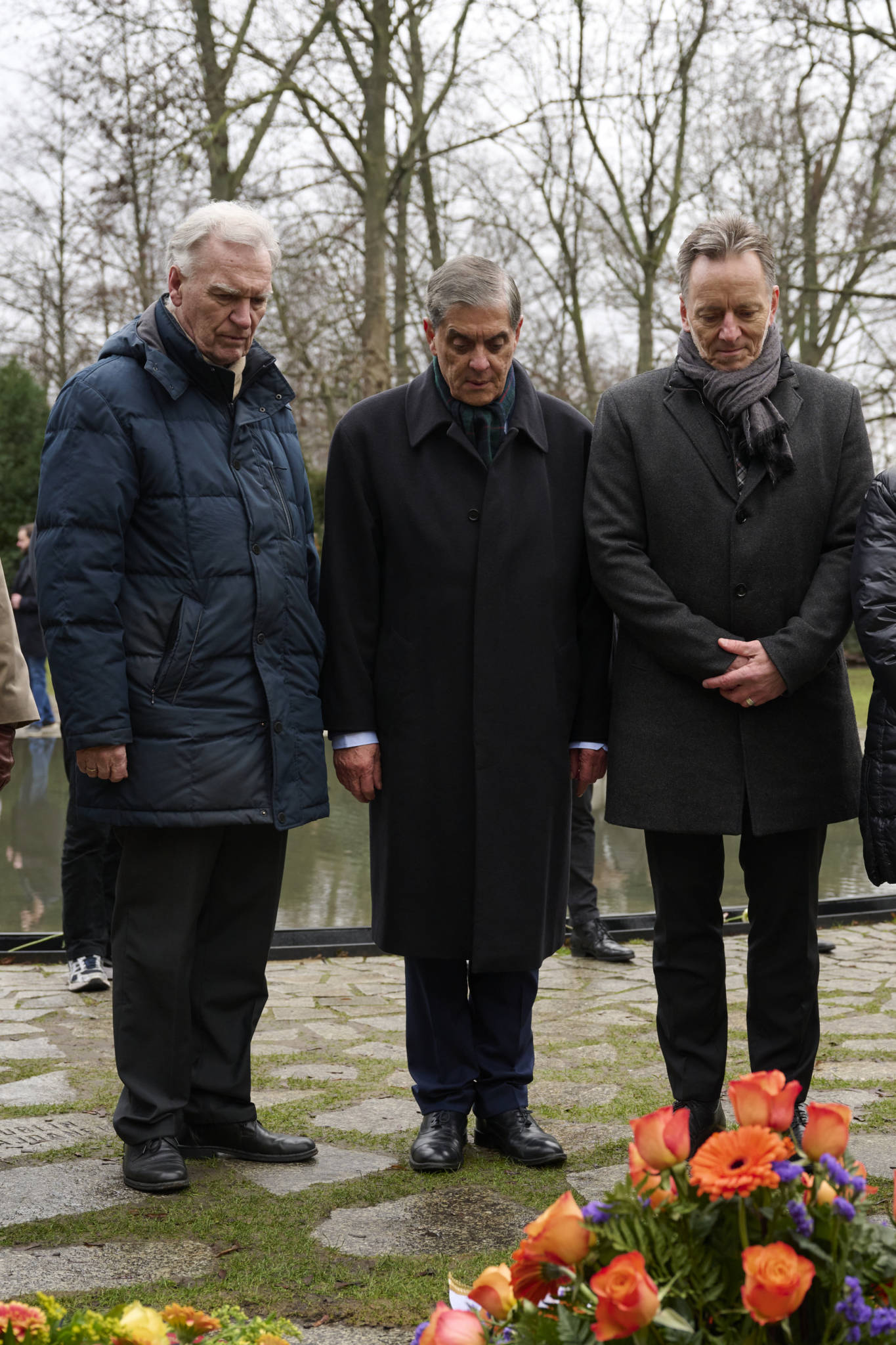Today, on the occasion of the International Day of Remembrance of the Victims of the Holocaust, Holger Münch, President of the Federal Criminal Police Office, and Romani Rose, Chairman of the Central Council of German Sinti and Roma, signed a joint agreement on future collaboration against antigypsyism.

Decisively confronting antigypsyism
Federal Criminal Police Office and Central Council of German Sinti and Roma sign joint declaration
Today, on the occasion of the International Day of Remembrance of the Victims of the Holocaust and the 78th anniversary of the liberation of the Nazi concentration and extermination camp Auschwitz-Birkenau, Holger Münch, President of the Federal Criminal Police Office (BKA), and Romani Rose, Chairman of the Central Council of German Sinti and Roma, signed the agreement “Together against Antigypsyism – Declaration of the Federal Criminal Police Office and the Central Council of German Sinti and Roma on Future Cooperation”.
The agreement is based on the working definition of antigypsyism of the International Holocaust Remembrance Alliance (IHRA), which the BKA adopts on this occasion. It is an important tool for identifying and resolutely countering the phenomenon of antigypsyism, this special form of racism directed against Sinti and Roma.
The signing of the cooperation agreement took place during a ceremony at the BKA headquarters in Berlin, which was attended, among others, by Nancy Faeser, Federal Minister of the Interior and for Home Affairs, Mehmet Daimagüler, PhD, Federal Government Commissioner against Antigypsyism and for the Lives of Sinti and Roma in Germany, Robert Klinke, PhD, Special Representative at the Federal Foreign Office for Relations with Jewish Organisations, Anti-Semitism Issues, Holocaust Remembrance and International Affairs of the Sinti and Roma, Jörg Zierke, former President of the BKA, as well as Romani Rose, Chairman of the Central Council of German Sinti and Roma, and Holger Münch, President of the BKA.
Jörg Ziercke, President of the BKA from 2004 to 2014, said: “The Nazi police took an active role in the extermination of the Jews and the Sinti and Roma. However, it was the exclusion, deportation and murder of the Sinti and Roma that became the core project of the Nazi criminal police.” Regarding the history of the founding of the BKA, he says: “Well-knit networks of former members and a “coming to terms with the past” policy that relied on amnesty and amnesia ensured the image of a criminal police actively distancing itself from National Socialism, a policy that was maintained for decades.”
On the initiative of the then BKA president, the BKA began to critically reflect and intensively reappraise the history of the office from 2007 onwards, especially with regard to its founding phase as well as structural and personnel continuities and breaks in relation to the National Socialist era. Since then, the examination of the BKA’s past has been actively promoted in basic and advanced training, and more recently through the work of the Commissioner for Values of the BKA.
BKA President Holger Münch: “This reappraisal has enabled a growing relationship with the Central Council of German Sinti and Roma. In remembrance of the victims of the Holocaust and in awareness of the responsibility of our own actions today, through the new cooperation agreement, we establish the clear goal of counteracting any form of racism and discrimination inside and outside of police work.”
Romani Rose, Chairman of the Central Council of German Sinti and Roma: “It is not too much to say that today is a “history-making” day. The fact that the Federal Criminal Police Office and the Central Council of German Sinti and Roma are signing a joint agreement on future collaboration against antigypsyism must be seen as a ‘radical change’ in the way police authorities have dealt with our minority since 1945. For this, I thank the BKA and all those involved in bringing about this cooperation agreement.”
Nancy Faeser, Federal Minister of the Interior and Home Affairs: “The German police authorities register more than 100 antigypsyist crimes every year. And unfortunately, we have to assume that there is a considerable dark figure. We must do everything in our power to prevent these crimes as well as any attacks below the threshold of punishability. The police must recognise, record, and resolutely combat antigypsyism. The inclusion of the IHRA definition of antigypsyism in the catalogue of topics of the criminal police reporting service in cases of politically motivated crime is an important building block for this. It exemplifies the efforts to create greater awareness of racism and to further sensitise the police in the fight against antigypsyism.”
Mehmet Daimagüler, PhD, Federal Government Commissioner against Antigypsyism and for the Lives of Sinti and Roma in Germany:
“The adoption of the IHRA working definition by the BKA is an important first step that must continued. The legislature is also called to take action. Sinti and Roma are regularly criminalised unjustly and just as regularly overlooked as victims of hate crime. In addition to antisemitism, the legislature should also explicitly mention antigypsyism in Section 46 of the Criminal Code. There is no legal or political justification for a different treatment in the criminal-law protection of minorities.”
Ambassador Robert Klinke, PhD, Special Representative of the Federal Foreign Office on International Affairs of Sinti and Roma, said:
“The adoption of the IHRA working definition by the Federal Criminal Police Office on this significant commemoration day is an important sign for the rights of Sinti and Roma not only in our country. With it, the BKA and its employees expand their work-related values with an instrument that helps to recognise, analyse, and document widespread antigypsyist stereotypes. May this step also be an encouragement for others to set an example against the still existing stigmatisation and unequal treatment of the largest minority in Europe. Because racism, discrimination and prejudice against Sinti and Roma must have no place, neither here nor in European or international cooperation.”
The cooperation agreement between the Central Council of German Sinti and Roma and the BKA can be found at www.bka.de.





